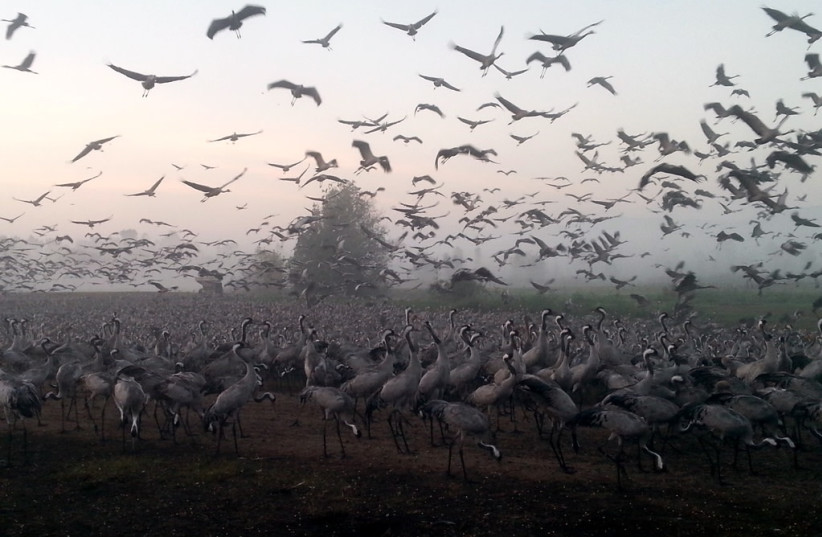Israel's Environmental Protection Minister Tamar Zandberg is planning to cancel the rest of Israel's hunting season amid the ongoing outbreak of bird flu in an effort to prevent possible zoonotic transmissions.
Zandberg described the plan as a "necessary step" in stemming the ongoing outbreak.
"The move is intended to prevent the outbreak from continuing and... to keep the hunters healthy from a dangerous and contagious disease, which can be fatal to humans," Zandberg said.
"The high mortality of cranes and other birds found to be infected with the disease indicates a severe and abnormal outbreak, and we must act immediately to minimize the contact between wild birds and humans."
The minister plans on signing a temporary order to end the hunting season early.

The outbreak of H5N1 bird flu in Israel has triggered a state of emergency after multiple cases were detected.
On December 25, the discovery of the virus in chicken coops near Margaliot led to the killing of 320,000 hens after 244,000 hens were killed in a separate outbreak earlier that week.
The outbreak has raised fears of it getting worse and that a possible egg shortage could happen in the near future. Fears were also raised due to the arrival of tens of thousands of migratory cranes to the Hula Valley. In fact, bird flu is already estimated to have cost the lives of over 5,000 migratory cranes since it arrived and has already cropped up in other parts of the country.
Israel's hunting season kicks off every year in September and lasts four months, with hunters typically hunting birds.
Though there are only around 2,000 licensed hunters in Israel hundreds of thousands of birds are often killed during the hunting season.
However, hunting wild birds could risk a possible zoonotic disease transmission, meaning a disease could jump from animals to humans. This is how the COVID-19 pandemic is widely believed to have started.
Fears of possible zoonotic transmission have already seen the Agriculture Ministry order farmers to follow directives and ensure their birds are separated from wild birds to avoid getting sick and possibly infecting humans.
A high number of bird flu outbreaks have also been reported throughout Europe, Africa and Asia in recent weeks, mostly due to the H5N1 subtype, according to the World Organization for Animal Health (OIE).
The OIE has urged countries to increase surveillance for high pathogenicity avian influenza (HPAI) outbreaks, as the virus has been reported in over 40 countries since July.
The H5N1, H5N3, H5N4, H5N5, H5N6 and H5N8 subtypes of HPAI are circulating in bird and poultry populations across the globe, sparking concern at OIE which called this an “unprecedented genetic variability of subtypes... creating an epidemiologically challenging landscape.”
Zandberg's proposed canceling of the hunting season was praised by the Society for the Protection of Nature in Israel (SPNI), who called such caution reasonable and warranted.
"The hunters tend to move from one wetland to another and can end up spreading the virus as a result," SPNI Environmental Protection Department director Dan Alon told The Jerusalem Post.
But this is just one of the two reasons why ending the hunting season right now is so crucial.
"Hunters usually eat what they hunt," Alon said. "If you eat a bird who is infected with bird flu, well, we already saw the results [with other zoonotic transmissions]."
Alon predicted that some of the hunters could voice opposition to the move when it goes to a public hearing before being signed. But regardless, he stressed that the move is important.
"I don't think we should take any risks with this disease," he said.
